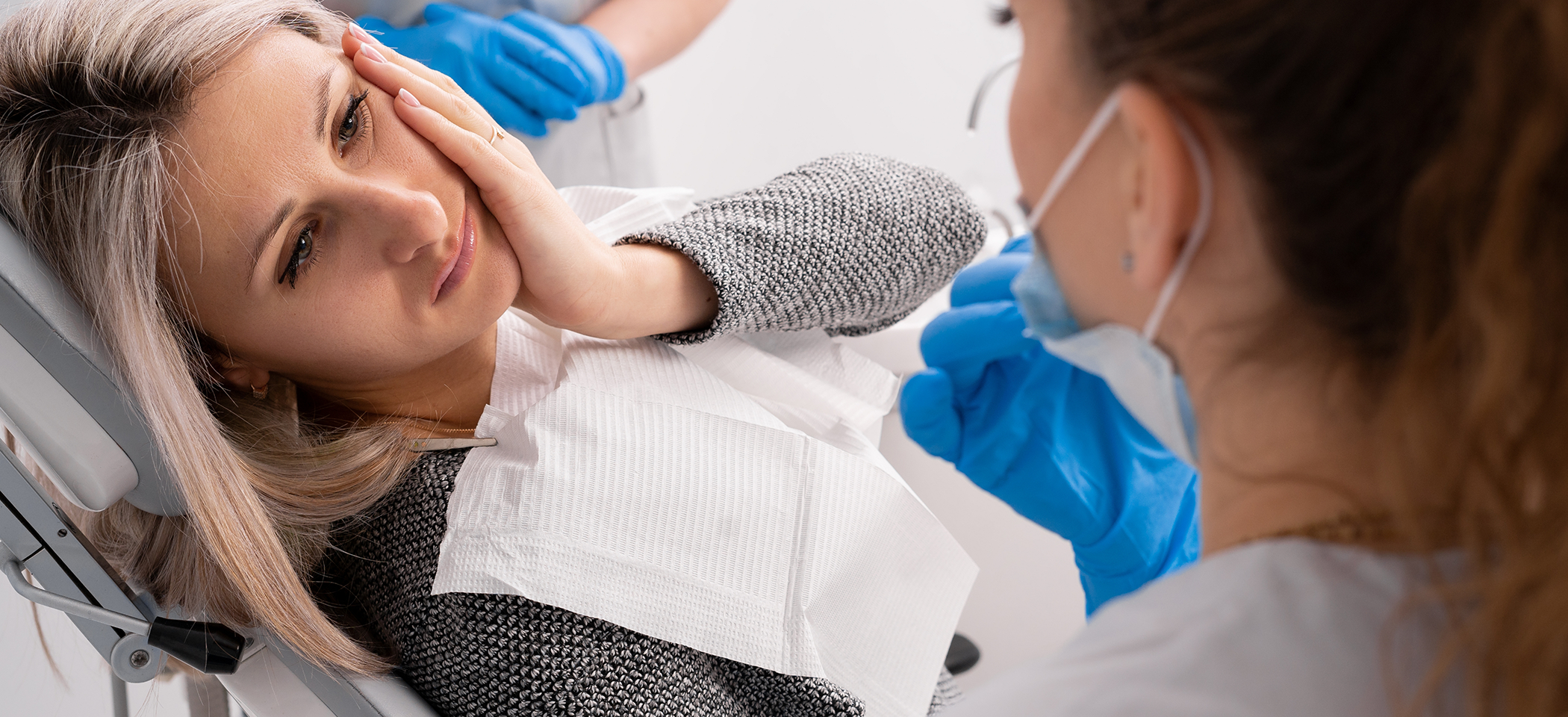Emergency Dentist Midlothian
Treating Your Pain and Dental Injuries Quickly
There’s no time to lose when you’re suffering from a dental emergency. Putting it off for too long can cause your dental pain to grow worse, and it could even potentially cost you the opportunity to save the tooth before the damage becomes irreparable. It’s better to call Long Family Dental instead of the emergency room in these situations; we can make time to see you right away for emergency dentistry in Midlothian– usually on the same day – and our dental office is more likely to be equipped to help you find relief as soon as possible.
Why Choose Long Family Dental for Emergency Dentistry?
- Comprehensive Treatment Menu
- Same-Day Appointments Offered
- IV and Oral Sedation Available
I Need a Checkup & Cleaning I Am Looking for a Dentist for My Child I Am Worried About Bleeding Gums I Have a Cavity or Broken Tooth I Am Missing One or More Teeth I Want to Enhance My Smile I Am Scared of the Dentist I Have Jaw Pain I Am Worried About Sleep Apnea View Our Services
What to Do in a Dental Emergency
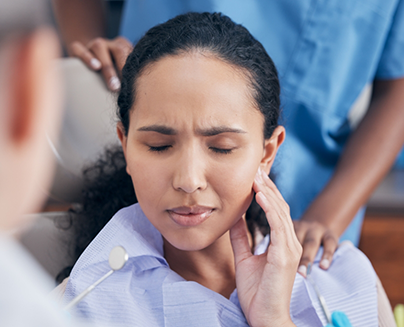
- Give Us a Call: The first step you should always take if you’re experiencing a dental emergency is to give our team at Long Family Dental a call. We’ll offer you first aid guidance over the phone and schedule an appointment for you that same day.
- Get Examined: When you come into our office, your smile will be examined by one of our skilled emergency dentists in Midlothian. Based on our team’s findings, we’ll diagnose any underlying conditions and walk you through our recommended treatment plan.
-
Receive Treatment: Once our team answers all of your questions, we’ll schedule your procedure for either the same or following day depending on how extensive it is.
The Most Common Dental Emergencies
There are two major kinds of dental emergencies: those that are the result of an unavoidable accident and those that stem from dental infections that went unaddressed for too long. No matter the nature of the emergency, you can be sure that you won’t be able to find a permanent solution on your own, so it’s best to call our dental office as soon as you’re able to.
Understanding the Cost of Emergency Dentistry

There is no set price for urgent dental care. After all, there are so many different kinds of emergencies that the treatment required to address them will vary wildly from case to case. We will never try to sell you a treatment that you do not need; stopping your pain and saving your tooth will be our only priorities. Our dental office accepts many different insurance plans and can help you apply for third-party financing to make paying for your care much easier.
Every Situation is Different
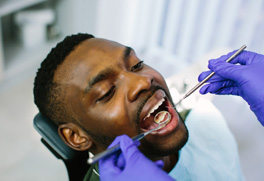
The cost of your emergency dental care will depend on a few different factors that are unique to your situation. Once one of your dentists in Midlothian examines your mouth, they will put together a personalized treatment plan that takes into account the type of damage your mouth has sustained, whether sedation is required, and any necessary follow-up appointments you may need. Based on these details, our team at Long Family Dental of Midlothian will provide you with a cost estimate.
Does Dental Insurance Cover Dental Emergencies?

In many cases, dental insurance plans will cover the examination as well as at least a portion of the cost of your required treatment. However, it’s important to keep in mind that every insurance plan is different. Our dental insurance specialists will help file claims on your behalf and do everything we can to help you get the most out of your benefits. We’re also in-network with a number of major PPO dental insurance plans, including Aetna, United Healthcare, Careington, BlueCross BlueShield of Texas, and Guardian, allowing you to maximize your savings.
Options for Making Emergency Dentistry More Affordable

If you’re uninsured or unable to pay for the out-of-pocket expenses, our team offers several additional options to allow you to get the care you need. You can split your expenses up into smaller monthly payments through CareCredit financing, so long as you qualify upon applying. Our team is happy to help you navigate the application process if you’d like assistance!
We also offer an affordable in-house membership plan through Kleer for our uninsured patients. For just $28 a month for children and $34 a month for adults, you’ll receive one covered emergency examination a year, a 15% discount on additional treatments you receive, and all routine preventive dentistry. It’s easy to use, convenient, and excellent for the whole family!
Prevention Can Help You Save Money in the Long Run
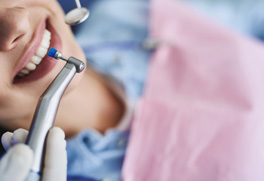
The best way to save yourself from unexpected dental emergency situations is to keep up with routine preventive dental care, like bi-annual checkups and cleanings and X-rays. By investing a little more of your time up-front in visiting the dentist for these appointments, you can save yourself from experiencing severe oral health concerns down the road that may put you in an emergency dental office!
Keys to Preventing Dental Emergencies
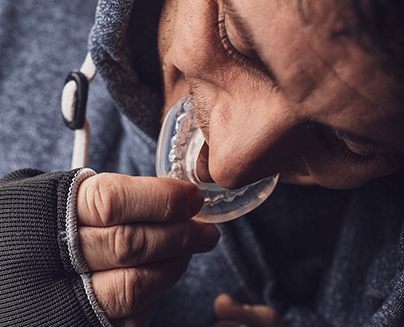
Preventing dental emergencies isn’t always possible. A sudden fall down the stairs or tripping over a tree branch while out for a hike is unexpected, but keeping up with your oral hygiene can minimize the risk of many of the most common problems. If you want to avoid spending additional time meeting with your emergency dentist in Midlothian, check out these helpful tips to lower your chances of sustaining a dental injury.
Don’t Skip Out on Regular Six-Month Visits
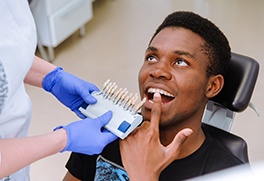
Your dentist is your friend and ally. At Long Family Dental, we want to help you enjoy life with a damage- and cavity-free smile. This is why you are encouraged to keep your regular six-month dental checkups and cleanings. Doing so will give us a chance to use more specialized instruments and an eye for detail to identify any signs of cavities, tooth decay, gum disease, infection, and damage. If any are found, we can eliminate the problem and improve the health and function of your pearly whites and gums for longer-lasting health.
Stay On Top of Your Oral Hygiene Routine
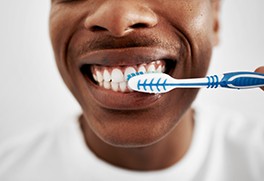
In addition to keeping your twice-annual visits with your dentist, you will also want to stay on top of your oral hygiene routine at home. This means brushing your teeth twice a day (and after meals), flossing at least once, and rinsing with an antimicrobial mouthwash. Your teeth need daily care because of the bacteria that can easily build up. By practicing proper oral hygiene, you can lower the risk of dental damage and infection, effectively reducing your chances of spending additional time and money on restorative treatment.
Think About What You’re Eating

Sugar and starch are known to cause cavities, so it’s best to limit how much you consume. Candy, chips, white pasta, desserts, crackers, and other similar foods should be enjoyed in moderation if you want to prevent cavities and dental decay. Instead, fill your diet with healthy options, such as leafy greens, fresh fruits and vegetables, low-fat dairy, lean proteins, and more. Also, don’t make a habit of chewing on ice, popcorn kernels, or anything else that’s hard. It can wear down the teeth quickly and eventually weaken them to the point of breaking. If you must chew on something, make it sugarless gum.
Safeguard Your Smile
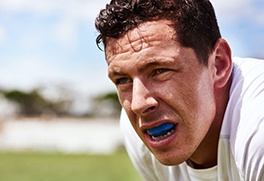
If you enjoy playing sports, it’s important to wear a mouthguard on the field at all times to protect your teeth. Even solo activities that require exerting a lot of energy (i.e., running, hiking, biking, etc.) can lead to accidental falls. By wearing a mouthguard, you can protect your teeth from serious harm, instead allowing the oral device to bear the brunt of any excessive pressure that might be placed on your pearly whites. The same is true if you grind your teeth at night. A custom nightguard can protect your teeth from damage or enamel erosion.
Don’t Use Your Teeth to Open Packages

Opening packages with your mouth is hard on your teeth, so take the extra time to find some scissors or another tool more suited for the job. Your tooth enamel may be the hardest substance in the body, but it can still sustain chips, cracks, fractures, and breaks. Don’t assume you’ll save time by using your teeth to do the job. Instead, you could find yourself losing valuable time by having to visit your emergency dentist because you refused to look for a proper tool.
Emergency Dentistry FAQs
How can I still get sleep if I have tooth pain?
If you’re experiencing a painful, persistent toothache that won’t seem to go away on its own, the first step you should take is to call your local emergency dental office to plan a visit. You can take over the counter pain medication like ibuprofen to help minimize your discomfort, and be sure to avoid foods that are cold, hard, or acidic before bed. It’s also a good idea to elevate your head above your heart to prevent the pain from becoming worse.
Will pulling a painful tooth stop the pain?
For teeth that are causing severe pain and that are untreatable, we may recommend a tooth extraction to ease your discomfort and keep the underlying dental concern from progressing. However, our team always tries to save your natural teeth whenever possible. In some cases, a restorative treatment like root canal therapy or a dental crown may be enough to erase your pain and preserve your natural smile.
How do I know if I should visit an ER or an emergency dentist in Midlothian?
If you’re experiencing oral pain or a dental problem like a severe toothache, there are a few questions you should ask yourself before deciding whether to go to an ER or emergency dentist:
- Could your pain be the result of a broken or fractured jaw?
- Are you bleeding a lot, even after putting pressure on the area for 10 minutes?
- Are you experiencing lockjaw and the dental office is closed?
- Do you have a serious cut or laceration on your face or mouth?
- Are you having difficulty breathing or swallowing?
If you answer “yes” to any of these, you should visit your local emergency room. However, if your pain is localized to your mouth and you’re not experiencing life-threatening symptoms like the ones mentioned in the questions above, an emergency dental office like Long Family Dental of Midlothian is who you should call!
Can I repair my broken denture myself?
Dentures are custom made to function optimally in your mouth by a team of skilled laboratory technicians. Because of this, our team does not recommend trying to repair broken dentures yourself. When you wear ill-fitting dentures, it can put you at a greater risk of developing an infection, like thrush, or experiencing irritation or oral sores. When you schedule an appointment with our Midlothian dental team, we can provide you with a same-day appointment to get your replacement dentures back to you as soon as possible.
How long can I go without a crown after it falls off?
While your tooth won’t be in immediate danger after a dental crown falls off, it’s important that you don’t put off getting a replacement for too long. By waiting for an extended period of time, you could be putting your tooth at a higher risk of becoming infected by leaving it vulnerable to being attacked by bacteria. Ultimately, this could mean needing more extensive treatment like a root canal or tooth extraction. That’s why we recommend calling our emergency dentist in Midlothian as soon as possible.

